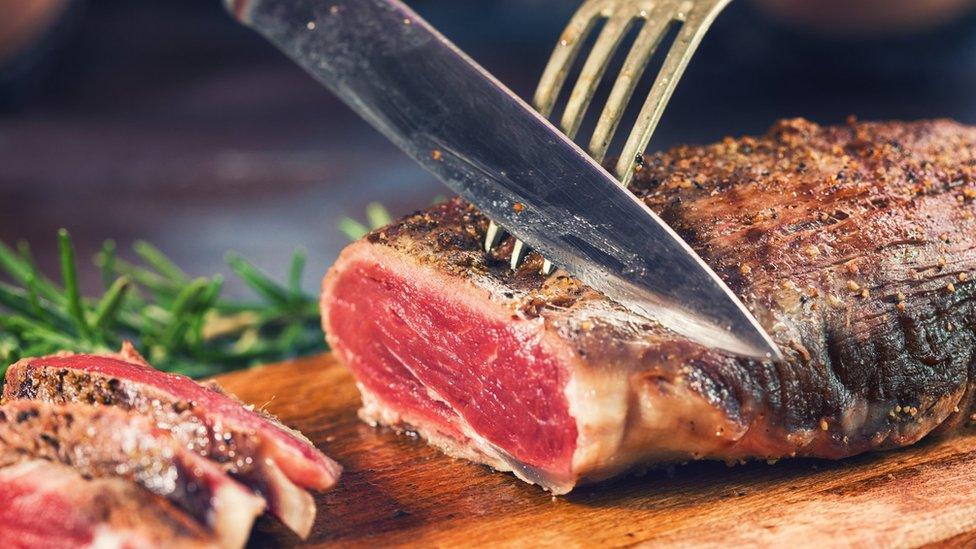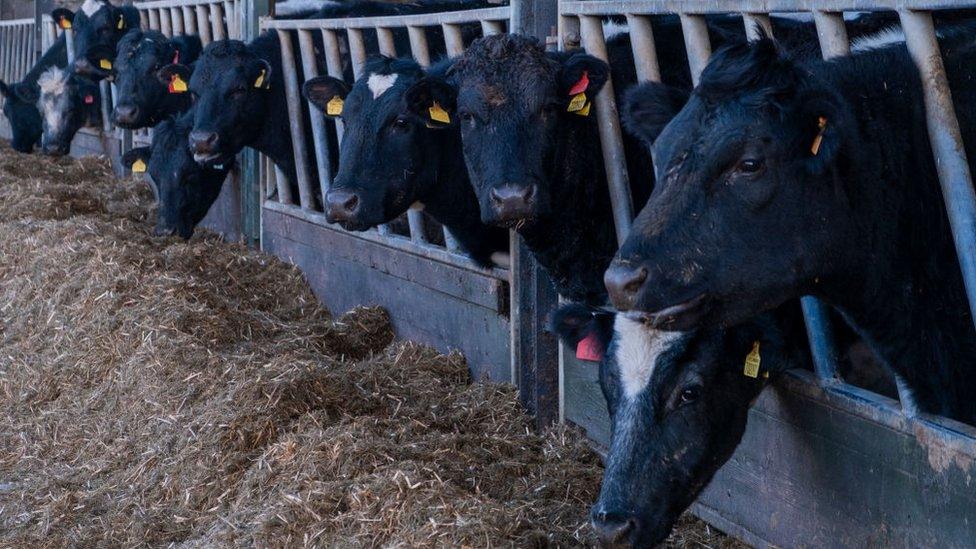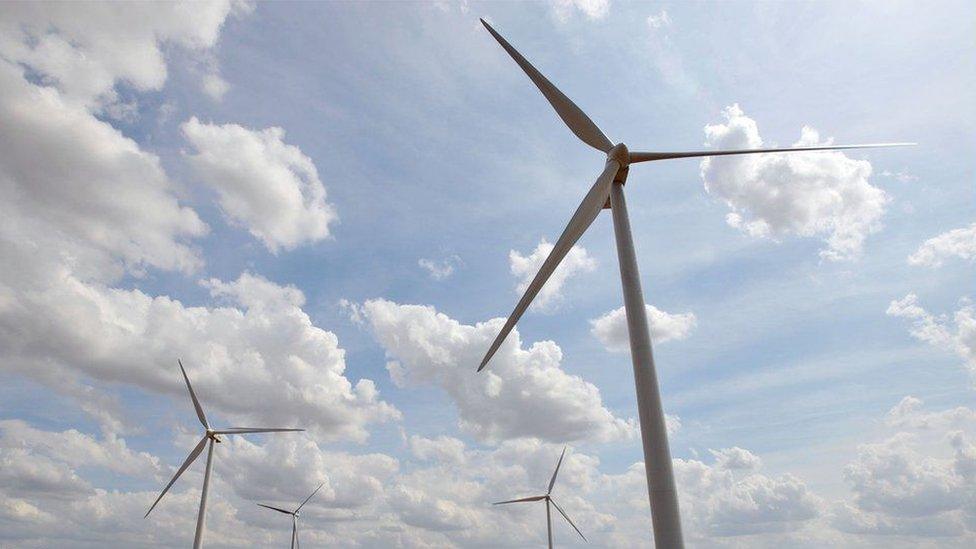Climate change: Red meat sector opposes proposed legislation
- Published

Northern Ireland's red meat sector is opposed to proposed climate legislation
Northern Ireland's red meat sector has been giving evidence to a Stormont committee on proposed climate legislation.
It is opposed to the private member's bill which would set a net-zero emissions target by 2045.
The agri-food industry says that would disproportionately affect the sector which is the biggest emitter of greenhouse gases.
The Northern Ireland Meat Exporters' Association represents meat companies.
Its spokesman Conall Donnelly said the bill had the potential to "decimate" the red meat sector which accounts for about half of Northern Ireland's agricultural output.
He was joined at the evidence session before a Stormont scrutiny committee by representatives of ABP and Dunbia, two of Northern Ireland's biggest meat businesses.

The bill, currently before the Northern Ireland Assembly, is a piece of framework legislation that proposes an overall target, but does not set sectoral targets for things like agriculture and industry.
Assembly members (MLAs) were told that much greater work needed to be done on accounting for carbon sequestration on farm so that it could be weighed in the balance when it came to carbon cuts.
Committee chairman Declan McAleer said farmers were getting confusing messages on the issue.
He said they were being told climate legislation would lead to big herd reductions and at the same time being advised that some farms on marginal land were already climate neutral.
The witnesses raised concerns about how emissions from livestock were measured, and that account should be taken of the fact that the main one, methane, is a short-lived pollutant.
They also questioned the logic of cutting carbon efficient meat production locally while importing red meat from countries with lower climate ambitions to replace it.
Dean Holroyd of ABP said the red meat sector was looking to science for answers, including genetics and diet to drive efficiency, bring cattle to slaughter weight earlier, and to cut emissions.
He said on two demonstration farms it had been possible to cut methane emissions from livestock by 40% against the national average.
- Published10 May 2021

- Published9 December 2020

- Published30 September 2019
